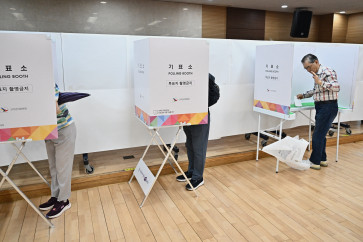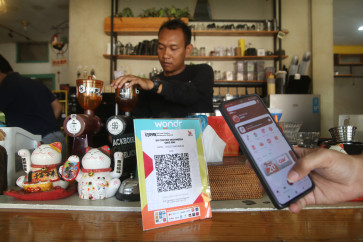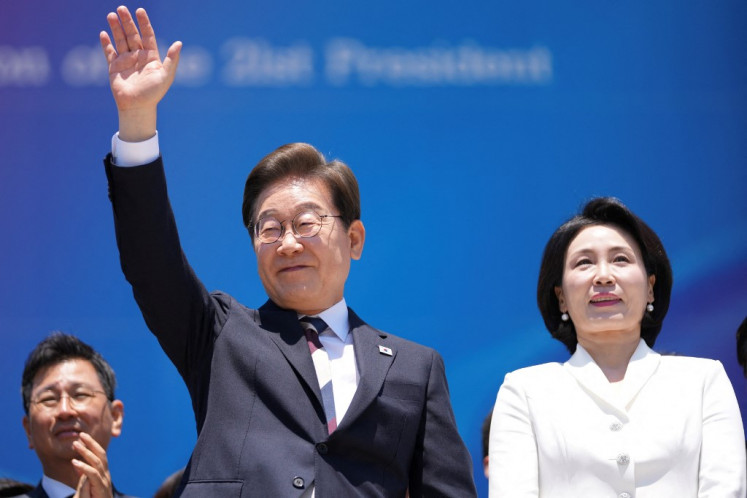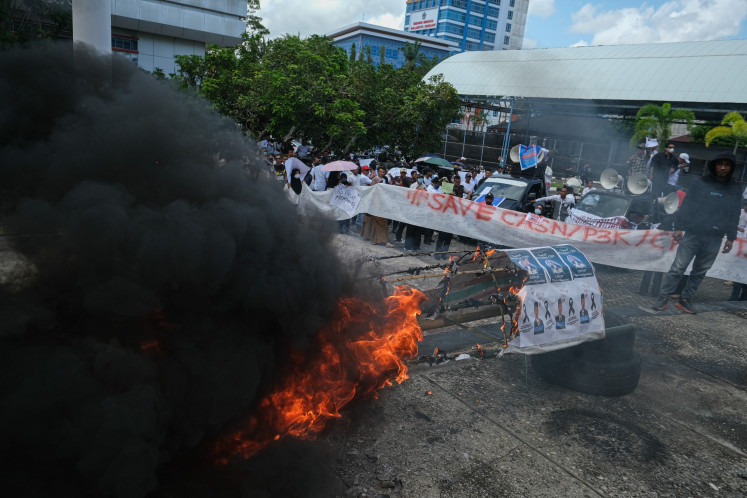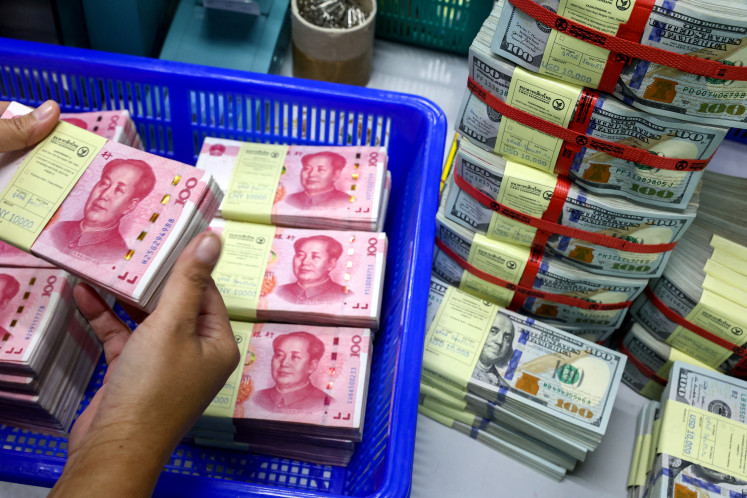G20: From crisis response to crisis prevention
The G20 should accelerate its efforts to close the digital divide by addressing the digital literacy and skills gap, supporting technological adoption and digital financial services for small and medium enterprises (SMEs).
Change text size
Gift Premium Articles
to Anyone
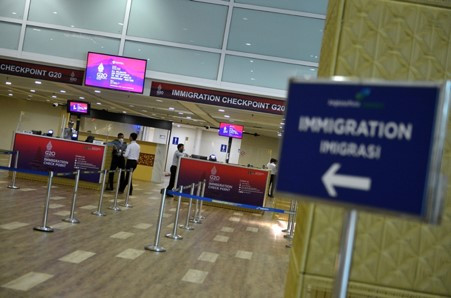

Against the background of uneven recovery following the pandemic and the prolonged war in Ukraine, Indonesia has been hosting the most challenging Group of 20 presidency yet. The global economy has suffered as economic growth weakened and inflation peaked due to rising energy prices, supply chain disruptions and mounting geopolitical tensions worldwide.
All eyes are on the G20 Summit to see how the world will come together to find common solutions and a path forward, despite their conflicting interests.
Throughout the year, the G20 working groups, both the Sherpa and finance tracks, have conducted meetings as well as disseminated and produced some critical frameworks to achieve the "Recover Together, Recover Stronger" vision of G20 Indonesia 2022.
Because of the war, the initial G20 agenda at the working group level needed to be adjusted. For example, securing food and energy supplies in addition to taming global inflation were made the top priorities.
There is no doubt that in this regard, Indonesia’s G20 presidency has become an essential international crisis response group. However, the adverse impacts of the multiple crises of climate change, COVID-19 and others have not gone away, while new and more complex challenges wait ahead. That is why the framework of the G20 has to endure, nimble and flexible not only in responding to the global challenges today and tomorrow, but also in preventing them.
It cannot be denied that the war and other crises have made the G20 process obscure and consensus less likely to be reached because of prevailing tensions at the summit. However, the G20 presidency should be viewed as a process rather than as a summit in and of itself.
Moving from crisis response to crises prevention seems to be a viable option in changing the way G20 anticipates and prepares for all possible scenarios. Expectation is slim for reaching consensus due to the geopolitical dynamics heading into the summit.
However, Indonesia has an opportunity to leave concrete deliverables as its legacy on at least three fronts.
First, the G20 agenda on strengthening the global health architecture must be the utmost priority, since the COVID-19 virus mutating and its scarring effects are here to stay. The G20 delivered an important achievement by establishing the Financial Intermediary Fund for Pandemic Prevention, Preparedness and Response (PPR FIF), also called the Pandemic Fund, hosted by the World Bank in close collaboration with the WHO.
This long-awaited effort was built on the two preceding G20 presidencies and should be highlighted as one of the significant contributions of this year’s forum. Sustaining this global pool of funds will be the G20’s next task.
The G20 also needs to support investment in developing vaccine production hubs, necessary health infrastructure and a robust early warning system, especially for less developed and developing countries. The G20 should focus on sustainable biodiversity management and the One Health approach in its medium- to long-term agendas.
Second, its digital transformation agenda remains uncoordinated due to a lack of trust, no global playbook for guiding policymakers and regulators, and burgeoning unilateral state action in the digital domain. At the same time, it hampers the deployment of digital technologies and limits their contributions to national employment and economic growth. The agenda, however, addresses some of the most sensitive issues, such as free flow of data and cross-border payment systems, where economic and security considerations intersect.
The G20 could lead a productive discussion to harmonize regulatory differences in data governance and digital trade policies and to determine common global principles and frameworks, including how to govern data and artificial intelligence (AI). G20 members should be encouraged to promote meaningful digitalization through cross-sectoral collaboration.
One example would be creating a "living lab" by implementing an innovative small-scale solution in a small area to solve real-life problems. This living lab can also involve a multistakeholder partnership, stakeholder engagement and establishing a network hub.
Ultimately, the G20 should accelerate its efforts to close the digital divide by addressing the digital literacy and skills gap and supporting the adoption of technology and digital financial services among small and medium enterprises (SMEs), in addition to ensuring equal and affordable internet access as a fundamental right and creating a safer online space for all.
Digital transformation of agriculture and using technology for better decision-making and innovation to address today’s global food insecurity are also crucial for farmers and smallholders. A key challenge in this regard is finding a balance between protecting the privacy and confidentiality of agricultural data and farmers’ economic interests therein, while making it possible to leverage their potential for the sector’s growth and innovation.
Finally, the G20 energy transition agenda highlights the importance of a just transition and the role of sustainable financing, especially for developing countries. One of the deliverables from the working group is the G20 Bali Compact, which reiterates G20 members' commitment to ensuring a smooth and effective energy transition to achieve carbon neutrality.
The G20 finance track also extensively discussed a sustainable financing framework to help countries meet their climate ambitions. More importantly, the G20 should address financial and nonfinancial barriers to scale efforts toward net zero emissions through common standards, eliminating tax-related obstacles, developing a rating system and enhancing supporting infrastructure.
Despite the adverse conditions during this year's presidency, Indonesia is bracing itself to be leader in this fractured world as the voice of the Global South. The summit will see Indonesia fill its role as a bridge between the conflicting interests of G20 members.
Finally, Indonesia should continue to play an active role in the G20’s Troika for the Indian presidency next year, allowing the Global South to lead the G20 alongside Brazil’s presidency in 2024.
With mounting challenges, the G20 must act with foresight to determine its priorities. This will be instrumental in keeping the G20 forum productive, not only as a crisis response group but also as a group to prevent future crises, in providing better and more concerted global cooperation.
***
Dandy Rafitrandi is an economics researcher at the Centre for Strategic and International Studies (CSIS) in Jakarta and a fellow at the LUISS Guido Carli in Rome. Purna Cita Nugraha is an Indonesian diplomat based in Rome and Indonesia’s alternate permanent representative to the Food and Agriculture Organization. The views expressed are their own.

